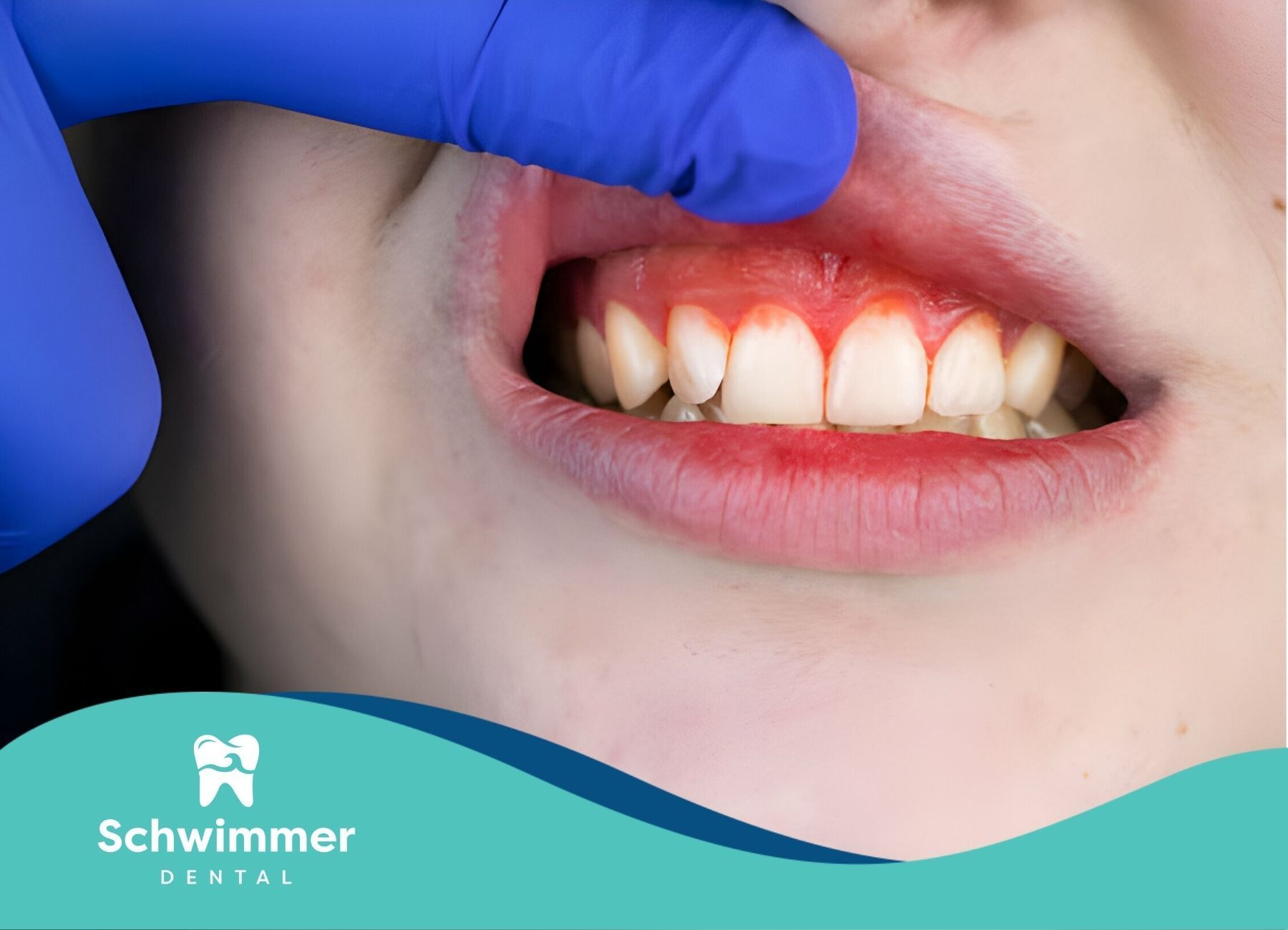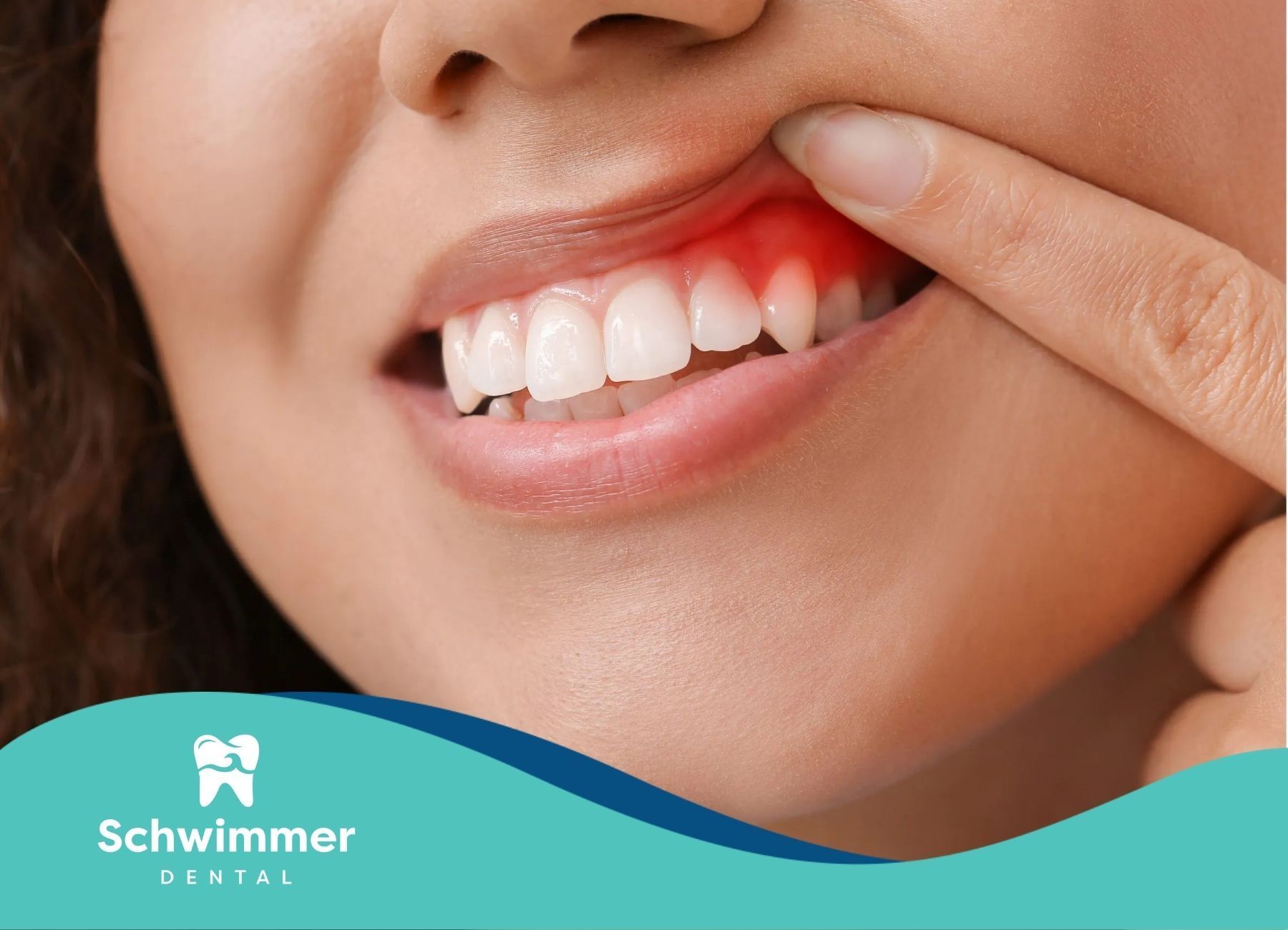Have an appointment? Complete the Intake Form
How to Restore a Chipped Tooth: Expert Dental Solutions
A chipped tooth can happen at any time—whether it's the result of a hard blow to the mouth, biting into something too hard, or an unexpected accident. While a small chip may seem like a minor cosmetic concern, even a minor injury to a tooth can cause discomfort, increase sensitivity, and even lead to further damage if left untreated. Fortunately, modern dentistry offers several solutions for fixing a chipped tooth, ensuring that you can restore both the function and appearance of your smile.
In this comprehensive article, we will explore the various causes of chipped teeth, the best options for repairing them, and important aftercare advice to ensure that your smile stays healthy and strong. Whether you’ve chipped a tooth recently or are just looking for preventive information, this guide will provide you with everything you need to know.
Why Do Teeth Chip?
Understanding why teeth chip is essential for both preventing and properly addressing the issue. There are various reasons why teeth can chip, some of which include:
1. Trauma or Injury
The most common cause of a chipped tooth is trauma or injury. This can happen from a sports accident, a car crash, or even just a fall.
2. Biting Hard Objects
Chewing on ice, hard candies, or even opening bottles with your teeth can put immense pressure on your enamel, causing it to crack or chip.
3. Tooth Decay
If a tooth is already weakened by cavities or decay, it becomes more susceptible to damage. The weakened enamel may chip away, especially when subjected to force.
4. Teeth Grinding (Bruxism)
Grinding your teeth, especially while sleeping, puts constant pressure on the enamel and can cause chips over time. If you’re not aware of this habit, a chipped tooth can be a sign that it's happening.
5. Age and Wear
As you age, your enamel naturally wears down, making it more likely for your teeth to chip. A combination of natural wear and poor oral habits may increase the chances of a chipped tooth.
Immediate Steps After Chipping a Tooth
If you find yourself with a chipped tooth, it’s important to take the right steps to prevent further damage and manage discomfort.
1. Rinse Your Mouth
First, rinse your mouth with warm water to cleanse the area. This helps remove any debris from the broken tooth and prevents infection.
2. Apply Pressure for Bleeding
If the chip caused bleeding, gently apply pressure to the area with clean gauze or a cloth until the bleeding stops.
3. Protect the Tooth
If the chip results in a sharp edge, protect your mouth by covering the jagged part with dental wax or a piece of sugarless chewing gum. This will prevent irritation to your cheeks, gums, and tongue.
4. Manage Pain
If there’s pain, you can take over-the-counter pain relievers, such as ibuprofen or acetaminophen, to reduce discomfort. However, don’t place any pain relief directly on the tooth, as it may cause irritation to the gum tissue.
5. Visit a Dentist
It's essential to schedule an appointment with a dentist as soon as possible. A chipped tooth can lead to further damage if not addressed, especially if the chip exposes the sensitive inner part of the tooth.
Treatment Options for a Chipped Tooth
Depending on the severity and location of the chip, there are several effective treatments available to restore the appearance and function of your tooth.
1. Dental Bonding
For minor chips, dental bonding is one of the simplest and most cost-effective solutions. This procedure involves applying a tooth-colored composite resin material to the chipped area. Once the resin is in place, the dentist hardens it using a special light, which bonds the material to the tooth. Bonding can restore the tooth's shape, function, and aesthetic appearance.
Benefits of Dental Bonding:
- Quick and affordable
- Non-invasive
- Suitable for minor chips or cracks
- Natural look
Considerations:
- Less durable than other options like veneers or crowns
- May require touch-ups over time
2. Dental Veneers
If the chip is more noticeable or larger in size, dental veneers are an excellent option. Veneers are thin shells of porcelain or composite resin that cover the front surface of the tooth. They are custom-made to fit your teeth and provide a durable, long-lasting solution for chips that affect the appearance of the tooth.
Benefits of Veneers:
- Excellent for covering larger chips or cracks
- Provides a natural, lifelike appearance
- Durable and stain-resistant
- Suitable for front teeth
Considerations:
- More expensive than bonding
- Requires some removal of enamel from the tooth surface
3. Dental Crowns
For more extensive chips or if a significant portion of the tooth has been compromised, a dental crown may be the best option. A crown completely covers the tooth, restoring its strength and functionality. Crowns are ideal for teeth that have suffered substantial damage, especially back teeth that need to bear a lot of pressure during chewing.
Benefits of Crowns:
- Restores tooth strength and functionality
- Provides full coverage for severe damage
- Long-lasting and durable
Considerations:
- Requires multiple visits to the dentist
- More expensive than bonding or veneers
4. Root Canal Treatment
In cases where the chip exposes the pulp (the soft tissue inside the tooth), bacteria can enter, causing infection. In these cases, a root canal is necessary to remove the infected tissue and prevent further complications. After the root canal procedure, a crown is usually placed to protect the tooth.
Benefits of Root Canal Treatment:
- Saves the tooth from further damage
- Prevents infection from spreading
- Restores tooth function
Considerations:
- May require extensive treatment
- Can be more expensive and time-consuming
Preventing Future Chips
Taking steps to protect your teeth can help reduce the risk of future chips. Here are some tips for maintaining a healthy, intact smile:
1. Wear a Mouthguard
If you participate in sports or engage in activities that may put your teeth at risk, wear a mouthguard to protect your teeth from injury.
2. Avoid Biting Hard Objects
Refrain from using your teeth as tools to open bottles or chew on hard objects like ice or pens.
3. Address Teeth Grinding
If you grind your teeth at night, consider wearing a night guard. Consult with your dentist if you suspect bruxism.
4. Regular Dental Check-ups
Routine dental check-ups can help identify weak or damaged teeth before they chip or break. Early intervention can prevent major issues later.
5. Practice Good Oral Hygiene
Brush your teeth twice a day, floss regularly, and use fluoride toothpaste to keep your teeth strong and healthy. A strong enamel layer is less likely to chip.
Conclusion
A chipped tooth is a common dental issue that can be easily addressed with modern treatments. Whether you’re dealing with a minor cosmetic concern or a more significant break, there are multiple solutions available to restore your tooth’s appearance and functionality. From dental bonding to crowns and veneers, Schwimmer Dental offers a variety of treatments tailored to your needs.
Our team of experienced dentists is dedicated to helping you restore your smile with the latest techniques and materials. If you have a chipped tooth, don't wait to get treatment—reach out to Schwimmer Dental today!
Frequently Asked Questions
Can a chipped tooth heal on its own?
Minor chips may not require treatment but should be monitored to ensure they don’t cause further damage or discomfort. It's still important to see a dentist to avoid potential complications.
How long do dental repairs for a chipped tooth last?
Dental repairs like bonding and veneers can last many years with proper care. Crowns tend to last even longer, providing long-term durability.
Is dental bonding painful?
Dental bonding is typically a painless procedure. There may be slight sensitivity, but it is usually temporary and resolves quickly after the treatment.
Need Assistance? We’re Here to Help
We are dedicated to enhancing your dental health and well-being.
We provide personalized dental care solutions for a confident, healthy smile.
Contact us today for Professional Dental Care.

Our caring staff will help you feel relaxed and comfortable in our state of the art office. We respect your time and pledge to deliver prompt service, backed by the latest knowledge, techniques, and technology.
Email: Office@schwimmerdental.com
Tel: (848) 294-2385
Fax: (732) 899-3347
Address: 1115 Arnold Ave,
Point Pleasant, NJ, 08742
Schwimmer Dental – Website by CWS


